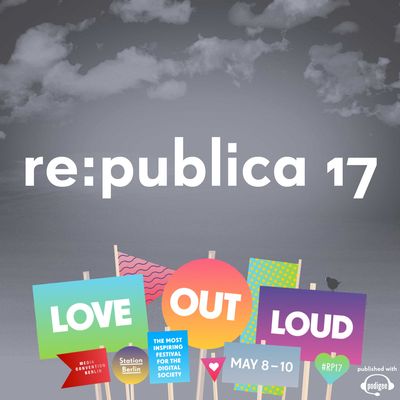re:publica is one of the largest and most exciting conferences about digital culture in the world. Since its foundation in 2007, it has grown from a cozy blogger meeting with 700 participants into a wide-ranging “society conference”, with 8.000 visitors at the anniversary edition re:publica TEN. Representatives of digital culture share their knowledge and decision-making tools, and discuss the future of the information society. Here they can mingle with activists, scientists, hackers, entrepreneurs, NGOs, journalists, social media and marketing experts, and many others. This fosters innovation and creates synergies between net politics, online marketing, network technology, digital society, and (pop) culture. What is more, around 46 percent of re:publica speakers are female – far more than at many other similar events.
https://republica17.network.podigee.io/
episode 2: Copyright Untangled - Fixing copyright for the 21st Century
The internet has created new possibilities for online learning and universal access to the collections of museums, archives and libraries. Europe is discussing an update of its copyright laws that has the potential to remove some of the limitations to those activities. But unless we are able to change what is on the table, Europe will be stuck with inflexible rules. In this session we will discuss the opportunities to make copyright fit for education and culture in the 21st century.
- Delia Browne
- Paul Keller
- Alek Tarkowski
- Teresa Nobre
The internet age has created new possibilities for educational practices and access to works held by museums, archives, and libraries. We need copyright laws that enable teachers to provide the best education they are capable of and that fits the needs of teachers in the 21st century. Research has shown that copyright is unnecessarily restrictive for teachers and that the fragmented nature in Europe creates legal uncertainty among teachers. We also need copyright laws that free libraries, archives, and museums from unnecessary restrictions that prevent them from making their rich collections available online.
For the first time in more than a decade, Europe is discussing an update of its copyright laws that has the potential to address some of the limitations copyright law places on online education and access to cultural heritage. Unsurprisingly, the changes proposed by the European Commission in September 2016 that are currently being discussed by the European Parliament fail to deliver on such promises. Unless we are able to substantially change the Commission's proposal, Europe will be stuck with inflexible copyright rules that continue to limit the potential of the internet in online learning and access to culture.
By comparison, Australia, following the lead of the US, Israel, Singapore, Korea, and Canada, is considering the introduction of a flexible fair use exception that would provide much more room for online educational activities.
This panel brings together copyright reform activists from Creative Commons global network who will look at what policies are needed to facilitate online learning and to increase access to and reuse of culture and knowledge. We will highlight the issues at stake and the opportunities for getting engaged in efforts to make copyright fit for the 21st century. The session will consist of two talks, one on Education by Delia Browne and one on access to culture by Paul Keller, followed by a discussion joined by Teresa Nobre, Timothy Vollmer, and Alek Tarkowski.
